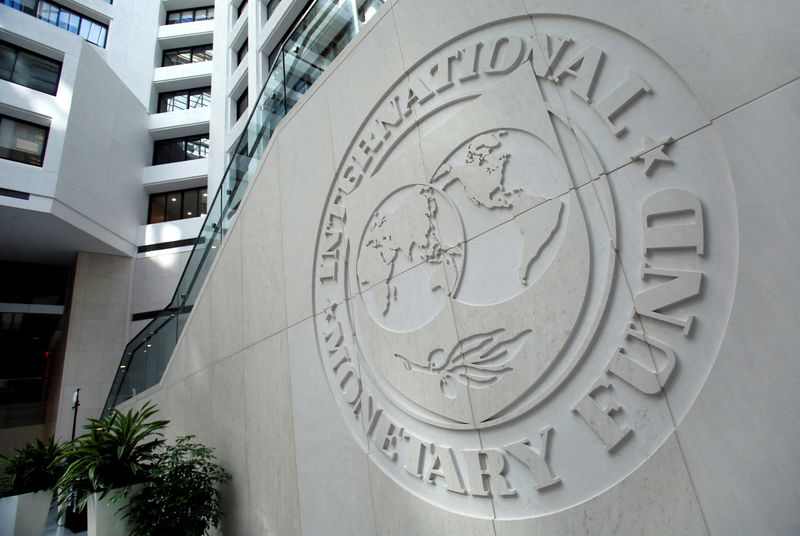By Marc Jones and Walter Bianchi
LONDON/BUENOS AIRES (Reuters) - Argentina's breakthrough agreement with the International Monetary Fund for a $44.5 billion new deal should bolster domestic markets in the weeks ahead, investors and analysts said, though the longer-term outlook remains hazy.
The South American country said on Friday it had struck a deal with the IMF over a new standby program to replace a failed $57 billion loan from 2018, easing fears of a potential default as major payments come due this year.
That will likely bolster bond prices that had sunk into the 20-30 cents on the dollar range over the past year as the talks had dragged, bogged down by disagreements over the speed of fiscal consolidation.
"It gives them some breathing room for the next couple of years," said Peter Kisler, Trium Capital emerging market portfolio manager, who holds Argentine debt. Bonds could "easily go up another 20% if there is a bit more optimism," he added.
"The agreement is not as detailed as we would have liked, so we don't see prices flying from here, but there was a real risk of a default to the IMF."
Bonds were up some 3 cents on Friday after the government and the IMF announced the agreement, which still needs to be ironed out and approved by Congress and the IMF board.
Argentina was facing some $18 billion in payments due to the IMF this year which it said it could not pay after years of economic crises compounded by the COVID-19 pandemic. It restructured over $100 billion in private debts in 2020.
(Graphic: Argetina's bonds had fallen to all-time lows, https://fingfx.thomsonreuters.com/gfx/mkt/byprjxlmzpe/Pasted%20image%201643388344345.png)
'NO FISCAL EFFORT'
The deal "relieves financing needs for the coming years and reduces uncertainty in Argentina's economy" amid a tentative recovery over the past year, said Eugenio Mari, chief economist at research organization Fundacion Libertad y Progreso.
Carlos de Sousa from Vontobel Asset Management forecast the deal clinched by the leftist government would be approved by Congress, where the conservative opposition will likely back it.
"I think the opposition will approve it as they don't want to be seen as the irresponsible ones that vote it down," he said. "For 2022 and 2023 there is virtually no fiscal effort so Argentina basically got what it wanted."
In a note, Goldman Sachs (NYSE:GS) analyst Alberto Ramos said it remained to be seen how robust the plan would be and whether it would solve Argentina's economic issues.
"Overall, the macro-financial picture shows deep imbalances and widespread distortions rendering a gradual policy adjustment strategy inherently risky," he wrote.

An Argentine stock trader, who asked not to be named, said the market remained tense but the announcement did help give a bit more certainty. He was keen to see the fine print of the final deal and how it was carried out in practice.
"The announcement gives some breathing space to the market, but we have to be cautious and see how the agreement is implemented," he said.